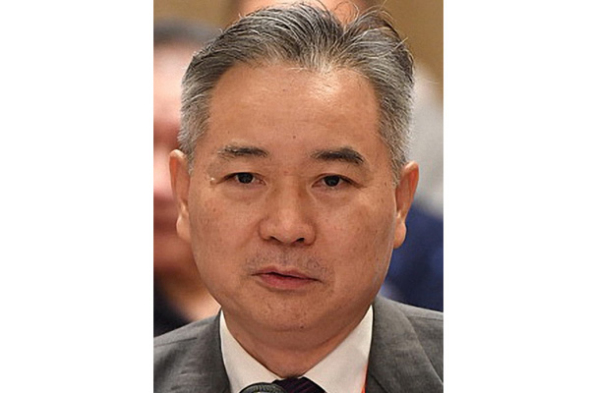
Xu Hongcai, an economist at the China Center for International Economic Exchanges. (Photo/China Daily)
The country should strengthen scrutiny of cross-border capital flows and increase the flexibility of its monetary policy to offset any adverse effect from the drastic tax cuts by the United States, economists said on Monday.
The tax bill approved by the U.S. Senate on Saturday will likely prompt U.S. companies to repatriate profits back home and the tax measures will attract greater capital inflows into the country, which will in turn lift U.S. asset prices and the value of the dollar.
One immediate impact on China could be rising pressure of capital outflows and the potential depreciation of the yuan, said Xu Hongcai, an economist at the China Center for International Economic Exchanges.
"The expansionary fiscal policy of the U.S. could also lead to more aggressive rate hikes of the Federal Reserve. In that case, China should further increase the flexibility of its monetary policy to keep domestic money supply at an appropriate level," Xu said.
The tax reform measures by the Trump administration will mean that the U.S. corporate tax rate will be reduced to 20 percent from 35 percent and future foreign profits of U.S.-based firms will also be largely exempt.
"This will make the U.S. a magnet attracting greater capital, talents, technology and investment. China should not underestimate the long-term impact of this," Xu said.
Some economists said that policymakers in Beijing should accelerate domestic structural reforms, especially tax reforms, to further cut corporate costs in response to the U.S. tax cuts which could pose challenges to the competitiveness of Chinese companies in the international markets.
While the U.S. tax overhaul will have a spillover effect and may prompt other countries to follow suit with similar tax cut moves, Cheng Shi, chief economist at ICBC International said the impact on China's industrial competitiveness will likely be limited as other developed economies with industries that are highly subsistent to the U.S. ones will likely bear greater brunt.
"Reducing corporate tax and fees has been a crucial part of China's ongoing structural reform. The country has achieved positive results of lowering corporate tax burden," Cheng said.
The tax bill passed by the U.S. Senate will officially take effect in 2019, meaning that it will not be a major factor to influence cross-border capital flows and the value of the dollar in the near term, Cheng said.
The economist added that China will likely maintain a prudent monetary policy and the Chinese currency is unlikely to see sharp volatility because of the U.S. tax cuts. He added that the country already saw eased pressure on capital outflows with a rebound of its foreign exchange reserves.


















































